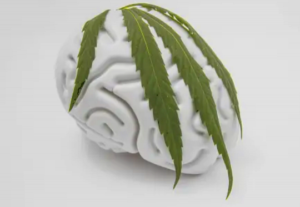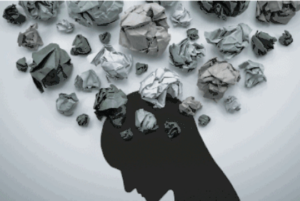ADHD – you’re not alone, and we’re growing daily
Attention deficit hyperactivity disorder (ADHD) is one of the most common neurodevelopment conditions among children, affecting an estimated 11% of U.S. children, and a recent E.U. study found that 1 in 20 children in the EU have ADHD. In Sweden it is believed that there are roughly 140-170, 000 children who are affected by ADHD, and many consider these numbers to be underreported. More than 3 in four children diagnosed with ADHD continue to experience the symptoms into adulthood.
ADHD affects the brain’s executive functioning, the ability to self regulate and control thoughts, words, actions and emotions. ADHD is characterised as a disorder with symptoms ranging from difficulty paying attention, hyperactivity and impulsive behavior. Adult ADHD can lead to alcohol abuse, unstable relationships, poor school or work performance, low self-esteem, and interference with daily functioning. This can range from mild to severe. Often adults with ADHD are unaware they have it, they just experience life’s tasks as more challenging. Adults with ADHD may find it difficult to focus, prioritise and organise, leading to forgotten social plans and meetings and missed deadlines at work or school. The inability for impulse control ranges from general impatience to mood swings and/or outbursts of anger.
In Sweden, ADHD in adults has been reported to account for 2.7% of all psychiatric diagnoses. Among all adults with ADHD, 78.9% were prescribed ADHD medication and one-third were prescribed more than one add-on medication. That’s a lot of statistics, a lot of pharmaceuticals, and a lot of ADHD.
A large number of people, both children and adults, have tried CBD and had good results with their ADHD. Not a miracle cure as some might claim, but a clear improvement. For some, however, the difference has been so great that it actually felt like a miracle. Living with ADHD isn’t always easy, and society doesn’t always treat you with understanding. So being able to minimize your symptoms is often experienced as a real relief.
 Can CBD help with my ADHD
Can CBD help with my ADHD
As there are now so many ADHD sufferers, and as the ‘word’ has gotten out, thousands — hundreds of thousands — are trying CBD to help alleviate their ADHD with very positive results. It’s not some miracle cure as some might claim, but it definitely may provide a clear improvement. For some, however, the difference has been so great that it actually does feel like a miracle cure. Living with ADHD isn’t always easy, and society doesn’t always treat you with understanding. So being able to minimize your symptoms is often experienced as a real relief.
Multiple studies have found that patients with ADHD who take the substance regularly experience a decrease in the symptoms. A 2018 study found that over 68% of patients aged 4-22 years old who took CBD oil for 66 days experienced a big improvement in their symptoms. Aside from the studies, various people have shared their experience with CBD, saying that taking the substance substantially improved their symptoms without the side effects and risk of addiction that a lot of other medications have.
Many people with ADHD have reported that CBD has a profoundly positive impact on alleviating their symptoms, it is important to remember that these are personal testimonies rather than double-blind studies, but as many jurisdictions did not allow research on cannabis before 2018 (due to it being labelled a controlled substance) the dearth of studies before 2018 has led to science needing to catch up to experience. CBD interacts with your endocannabinoid system, which regulates the production of certain brain chemicals and helps maintain a sense of balance in your body. In fact, this system plays a major role in many of the physiological functions that underpin ADHD symptoms like cognition, memory, concentration, focus, mood, and more. According to some ADHD patient reports, using CBD has helped reduce issues like anxiety, pain, hyperactivity, inflammation, and impulsivity.
Research shows that ADHD may be due to a lack of dopamine, a substance produced in the brain that is closely tied to the central nervous system. It is a neurotransmitter that regulates, among other things, motor skills, attention, enthusiasm and joy. The most common medications used for ADHD today work precisely by increasing the presence of dopamine in the brain. This is done by preventing it from being broken down, binding with dopamine and protecting it.
CBD, on the other hand, contributes to the presence of dopamine in a slightly different way. It stimulates the production of more dopamine, among other things by reducing the levels of cortisol. All of these functions are complex and closely linked to each other. Everything is connected, and by reducing something, it increases somewhere else. It makes sense, therefore, that something as complex as the endocannabinoid system could affect dopamine levels in the brain.
To summarize, the young, but steadily growing archive of research on CBDs impact on ADHD sufferers has shown positive results that speak of CBD affecting ADHD. The greatest effect seems to be in CBDs ability to alleviate many of the symptoms that can plague those with ADHD; as for CBD’s impact on ADHD at its source, we have much in the way of personal testimonials that attest to its benefit, but little yet in conclusive clinical studies that are repeatable and of a double-blind nature. Without doubt though as more and more is being uncovered as to the source and workings of ADHD, research with CBD is keeping pace and become ever more widely studied.
Reported Benefits of Using CBD for ADHD
Let’s take a closer look at some of the reported benefits of using CBD to treat symptoms of ADHD. There is a much greater volume of both understanding and research into the interaction and benefits of CBD use in alleviating many of the symptoms of ADHD.
Relaxed State of Mind
Statistics have shown that those with ADHD are at greater risk for anxiety disorders. Some studies show that CBD has tremendous potential to treat a wide variety of anxiety disorders including panic disorder, generalized anxiety disorder, and social anxiety disorder. It may also have some antidepressant action. These effects can help produce greater feelings of overall well-being and calm, which in turn helps you focus and concentrate. CBD has been reported to have anxiolytic properties, meaning it may help reduce feelings of anxiety and promote a sense of calmness.
A promising finding in a recent case report published in Medical Cannabis and Cannabinoids suggests CBD users may experience a significant drop in anxiety (up to 33%) and an increase in emotional regulation (22 to 78%), which may reduce hyperactivity and impulsive behavior.
 Regulation of Dopamine
Regulation of Dopamine
Dopamine is a key neurotransmitter produced by the brain. Dopamine activates the brain’s pleasure center resulting in feelings of well-being, satisfaction, and reward. Dopamine helps regulate memory, focus, and mood, and it supports planning, learning, and productivity. People with ADHD typically have lower levels of dopamine. CBD can stimulate the production of anandamide, a naturally occurring cannabinoid in the body that helps regulate dopamine and serotonin. CBD treatment can help increase dopamine levels.
Since ADHD patients have more anandamide in their brains, they can take advantage of CBD’s ability to moderate FAAH. FAAH is an enzyme that breaks down anandamide, so increasing its levels lets your body regulate anandamide levels more effectively. Balanced anandamide levels prevent your body from running out of dopamine too quickly.
Cannabinoids like CBD also balance dopamine levels and decrease sensory input. While you may think that lower sensory input is a bad thing, patients with ADHD often have too much of it. Regulated dopamine makes it easier for an ADHD brain to process thoughts and focus. It also reduces overstimulation caused by too much neurotransmission.
Improved Quality of Sleep
Good sleep is essential for overall well-being and good health. People with ADHD and anxiety can often find it difficult to relax and fall asleep, or they may have difficulty staying asleep. Thus, they fail to get the deep, restorative sleep necessary for optimal health.
Studies show that CBD may produce an overall calming effect on the nervous system. This helps produce feelings of well-being and peace during the day and helps the nervous system transition into the mode of restful sleep at night. Although research is still in the early stages, they suggest that CBD therapy can help people improve sleep issues like insomnia, REM sleep behavior disorder, and excessive daytime sleepiness. Being well-rested is crucial to managing ADHD symptoms like poor focus and concentration.
CBD may be extremely effective in the fight against anxiety and stress. CBD has anti-stress properties which may help calm a racing mind and a rapid heart rate. Researchers have found that the calming effects of CBD are felt almost immediately, compared to antidepressants which often take weeks to take effect. Many of an ADHD sufferers sleeping difficulties result from an overactive stress reaction that’s spilling into a rest time when we’re not trying to process conscious stimuli, CBD can suppress this dysregulated cycle of stress hormone overactivation and equalize the sleep and wake rhythm through counteracting hormones; this can assist in better quality sleep for those with ADHD.
CBD HELPS SMOOTH OUT THE ROUGH EDGES




